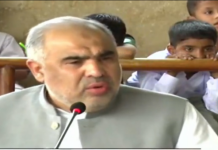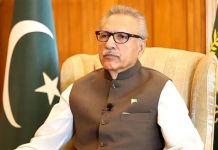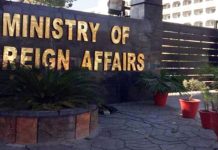KARACHI: Muttahida Qaumi Movement (MQM) Pakistan requested the Supreme Court to examine the alleged rigging of the population census procedure, which is scheduled to begin from March 15 in selected divisions of the country, including Karachi.
After filing a petition in the Supreme Court’s Karachi registry, MQM-Pakistan leader Farooq Sattar claimed that there were severe anomalies in the pre-census process of blocks count.
He alleged that as part of “pre-census rigging”, the blocks of urban populace were decreased in the upcoming 6th census, being held after 18 years.
He alleged that the blocks in urban Sindh, which were counted as 47.65 per cent during the last census, had been reduced to 45per cent in the new census.
He said his party had noted in the petition that Sindh’s urban population must have increased during the past 18 years due to urbanisation, yet the government had decreased the number of blocks so as to manipulate the census.
He pointed out because the blocks in Karachi, Hyderabad and Sukkur had been reduced, the houses and head count in those cities would also be proportionately less than their actual numbers.
The MQM leader feared that the government was manipulating the census to show increased rural and decreased urban populace. He accused the government of manipulating the census to compile flawed voter lists, doctored in the ruling party’s favour.
He was of the view that the procedure being used in the census was in contradiction with the law and the constitution. He demanded that those who migrated to the province in the last 18 years for economic purposes should not be termed permanent residents of Sindh.
Sattar noted that the first phase of the census was being carried out in urban areas only, which reflected the government’s intentions behind manipulation of statistics.
“We had raised the same issues before Chief Census Commissioner Asif Bajwa, but to no avail,” he said.
The national population census is to begin on March 15 with a house listing operation. Some 200,000 army personnel and 91,000 civilian enumerators have been enlisted to help carry out the operation.















